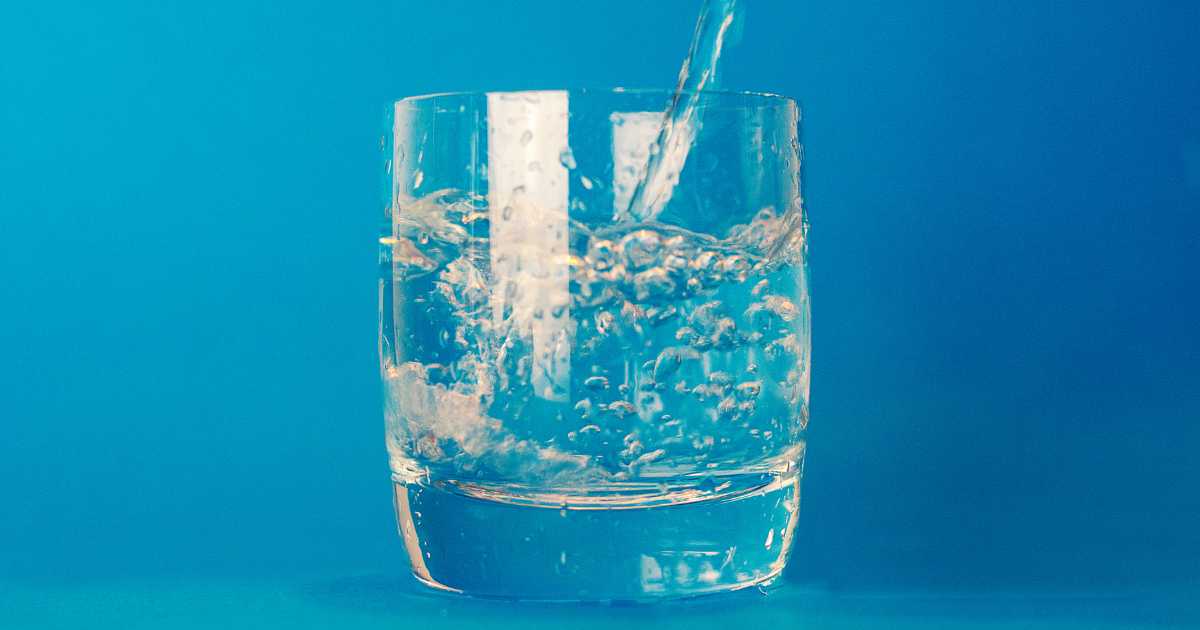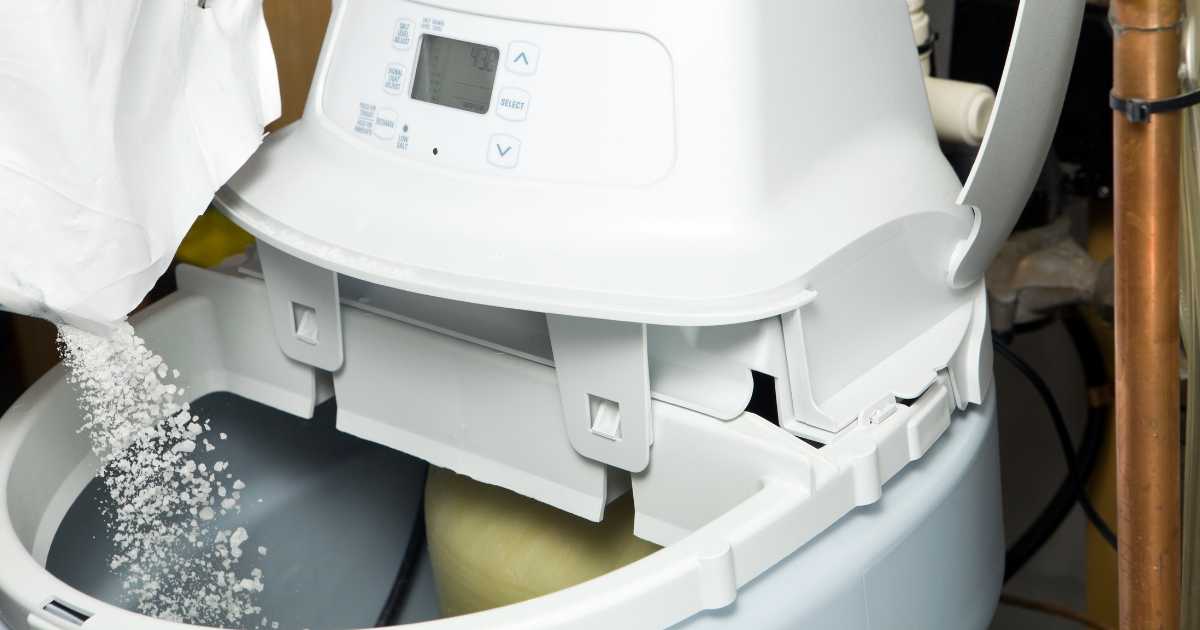We like to share product recommendations with you and hope you like them! Just to make you aware Water Filter Data may collect a small share of sales or other compensation from the links on this page.
Softened water is absolutely safe to drink! Water is essential for human life, and most of us take it for granted. We turn on the faucet, and out comes clean, refreshing water – perfect for drinking, cooking, and cleaning. But what if it is softened water? Is softened water safe to drink?
In this post, we will explore the safety of drinking softened water and how to make sure you are getting safe, healthy water. Read on to learn more.
What is Softened Water?

Softened water is treated with a process called ion exchange, which involves replacing the “hard” minerals that are present in regular water with other types of minerals. These minerals have sodium content, which makes softened water taste salty.
While some people may be concerned about the safety and potential health effects of drinking softened water, there is little reason to worry. Softened water has been thoroughly tested and proven safe for human consumption, as long as it meets certain quality standards.
Is Softened Water Safe to Drink?
In a word: yes! Softened water is perfectly safe for drinking, cooking, and cleaning purposes. This includes both salt-based softening systems and those that use other methods, such as potassium chloride.
The reason for this is simple – softened water is fully treated by a filtration process that removes all impurities, including any potassium or sodium ions, from the unsoftened water. This leaves you with pure, clean water that is safe to consume.
There are, however, some things to keep in mind when using softened water. One is that it may have a slightly different taste and texture than untreated, harder water. If this bothers you, you can add minerals back into the water – simply adding a pinch of salt or lemon juice will do the trick.
Another thing to be aware of is that softened water may not be ideal for certain household activities, such as watering plants or cleaning clothes. This is because softened water has a higher pH level than hard water and can damage certain types of fabrics or plants.
If you use softened water to perform any of these activities, you may need to experiment a bit and find the right balance.
Softened water is safe for drinking and other household activities, as long as it has been treated properly and any concerns about pH or texture have been addressed. With a little bit of research and experimentation on water hardness, you can ensure that your family is getting the healthiest, safest water possible.
Benefits of Softening Your Water at Home

There are several benefits to softening your water at home, including better taste and feel, improved health, and reduced maintenance costs.
Softened water has a much better taste and texture than untreated harder water. Soft water is also smoother and more refreshing to drink, which can help you stay hydrated throughout the day.
Also, softening your water can improve your health. This is because hard water contains high levels of minerals like calcium and magnesium, which have been linked to a number of negative health conditions such as kidney stones and hypertension. By removing these minerals from your water, you can reduce your overall risk of developing these health concerns.
Finally, softening your water can save you money in the long run. Soft water does not form limescale as easily, which means you do not have to spend time and money on cleaning filters or descaling your appliances. This can help reduce maintenance costs and keep your home running smoothly for years to come.
Hard Water vs. Soft Water
While hard and soft water both have their benefits, there are some key differences to consider when choosing which type is right for your home.
Hard water contains high levels of calcium, magnesium, and bicarbonate. These minerals can cause a variety of issues, such as clogged pipes, scaling on appliances, or discoloration in clothing.
By softening your water, you can remove these hard minerals and reduce the risk of these issues occurring. This will help keep your home running smoothly and ensure that your appliances last longer.
On the other hand, soft water has many health benefits for the body, as it is much easier for the digestive system to absorb compared to hard water. Additionally, it can reduce the risk of kidney stones and other health issues associated with high mineral content.
Ultimately, the choice between hard and soft water comes down to what is most important to you – whether that be cost savings or health benefits. Whichever option you choose, it is important to keep in mind the importance of proper water treatment and maintenance to ensure that both types of water are safe for use in your home.
How Does a Water Softener Work?
A water softener is a system that uses an ion exchange process to remove the minerals and metals that cause hard water.
The first step in the process is to run hard water through a tank filled with small resin beads. These beads are covered in tiny charged particles, or ions, which attract and bind to the minerals and metals in the water. As a result, these minerals are removed from the water, leaving it soft and clean.
Once all of the minerals have been removed, the resin beads are then flushed with asalt solution. This releases the ions back into the tank and restores them to their original state, ready for another round of treatment.
Overall, the water softening process is a highly effective system for removing hard water and improving the quality of your home’s water supply. Whether you are looking to improve your health, reduce maintenance costs, or simply enjoy better-tasting water, a water softener can help get you there.
Conclusion
Ultimately, whether or not you drink softened water is a personal choice. But if you do choose to drink soft water, there is no reason for concern about any adverse effects. With proper care and attention to local water quality standards, you can be sure that your drinking water supply is safe and healthy.
The most important thing is to check the quality of your local water supply and look for any issues or contaminants. You may also want to invest in a home filtration system or filter bottles to ensure that you are getting the best possible drinking water for cooking and other everyday tasks.



